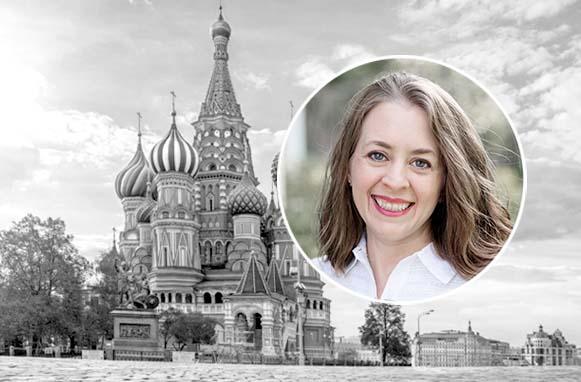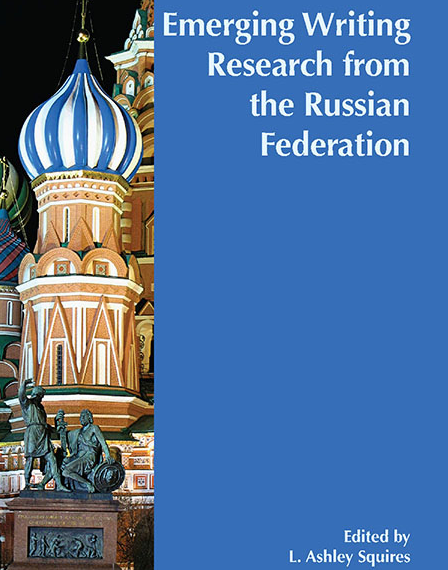
In her column for GURU, NES professor Ashley Squires tells about key trends and ideas in the sphere of academic writing as a scholarly discipline in Russia.
When I arrived in Moscow in 2013 to serve as the Associate Director of the Writing and Communication Center (in 2016, I was promoted to Director), I could scarcely have imagined what a transformative time I was in for. During the intervening nine years, NES has changed locations twice, finally arriving at our very own home at Skolkovo in the last couple of months. We have also seen the WCC grow from offering a few hundred consultations per year to nearly a thousand in 2020-2021. We have also seen an explosion of interest in writing centers and academic writing across Russia and the emergence of academic writing as a scholarly discipline. While the New Economic School is home to the very first modern writing center in Russia, in the past decade over a dozen writing centers have been founded, a professional organization has been established (the National Writing Centers Consortium), and annual conferences related to writing for international publication and the teaching of writing to students have been held. I am proud to say that the leadership of the NES WCC and Department of Humanities and Languages (and I am not only speaking of myself) has had an impact on these developments through the mentorship of other writing center leaders, the offering of workshops to faculty and students at other universities, and through publications in Russian and international journals.
This intensely productive period has now been documented in Emerging Writing Research from the Russian Federation, a collection of essays published by WAC Clearinghouse (part of the University Press of Colorado) and edited by myself with contributions from some of our current and former colleagues. The aim of this collection is to offer the reader a broad view of the changing landscape for academic writing, writing pedagogy, and writing centers in Russia by individuals with on-the-ground experience. In contrast to some collections which feature mostly Western scholars writing about other places, all the contributors to this collection have some connection to Russia and virtually all (except myself) speak Russian as their native language. We show how research in this area has developed regionally since the middle of the decade – a truly productive and arguably transformative period in terms of the establishment of institutions (like the NWCC) and the development of research, which in the Russian context has come to embrace approaches rooted in academic literacy as well as multilingual approaches.

In addition to featuring a region that has had little coverage in the previous literature, this book differs from previous studies in two important ways. For one, unlike Asia and the MENA region, Russia has no branch campuses of American universities (though a few private universities have dual-degree programs), and as such, these international models have had to conform to the complex bureaucratic structure of Russian higher education. What’s more, this work has largely been led and carried out by Russian specialists, who are the main protagonists in this story, in which Western-born and -trained specialists like me play largely a supporting role. Secondly, this collection makes a significant contribution to the field by providing research on the needs of multi-lingual faculty writers and case studies of support services for this growing constituency for writing instruction and services that has thus far been largely invisible given the Anglo-European focus on student writers.
Particular highlights from the book include Irina Korotkina’s agenda-setting essay, “Academic Writing in Russia Beyond Zero Point” in which she describes her early efforts to promote modern writing pedagogy in Russia and argues for a multilingual approach to the teaching of writing in Russian universities and schools. Education historian Elena Getmanskaya then describes the transformation of the school writing curriculum in Russia in the late-19th and early-20th, showing how we have lessons to learn in our present moment by studying writing controversies of the past.
The book also explores the particular writing practices and challenges facing Russian scholars. Natalya Smirnova and Anna Guseva present the results of a study of working art historians in Russia, while Svetlana Bogolepova offers statistics on the writing practices of language teachers and the factors that prevent them from more actively engaging in research and publication.
We also explore case studies of writing interventions in particular places. Tatiana Glushko, educated in Russia but now working at Jackson State University in the U.S., interviewed several writing center administrators and examines the ways in which Russian writing centers conceptualize themselves and their work. Svetlana Suchkova, Director of the Academic Writing Center at the Higher School of Economics (HSE University), which was also founded in 2011, discusses the practices of her own writing center and the results of client surveys that show the AWC to be highly effective at serving their constituency – faculty members and young researchers working toward international publication. And former NES WCC Director Olga Aksakalova and I, in “A Transnational Training Model For Peer Tutors,” analyze the results of a collaboration among peer tutors at the New Economic School and trainees at LaGuardia Community College in New York City.
Because applied linguists and EAP specialists have played such a critical role in the development of academic writing in Russia, the book also presents high-level linguistics research. Elizaveta Smirnova and her collaborators from HSE-Perm present a newly developed computer application that provides automated feedback on academic discourse features that are currently not parsed by programs like Grammerly. And Olga Vinogradova and team from HSE-Moscow present the results of computational research on first-language interference in the application of punctuation rules in English by Russian-speaking students.
We also include two contributions from current NES teaching staff. Tatiana Golechkova explores the problem of expectations mismatches between undergraduate students and their professors and how writing courses (since they encompass many aspects of academic literacy) can play a role in adapting students to university study. Then, writing from the specific disciplinary context of the literature classroom, as Irina Kuznetsova-Simpson argues for the substitution of linguistic approaches with reader-response approaches to the teaching of writing to undergraduate students in literature courses
This book was published in print and as an open-access e-book in November 2021. Unlike many other publishers, WAC Clearinghouse uses a blind review process that is as rigorous as any international journal, which means that all the chapters in this book have been subjected to considerable scrutiny, and most had to undergo multiple revisions before the book was published. Our contributors are therefore to be commended for their hard work and commitment to putting out a high-quality final product. In my nearly nine years in Russia, this may be the piece of work that I am proudest of.